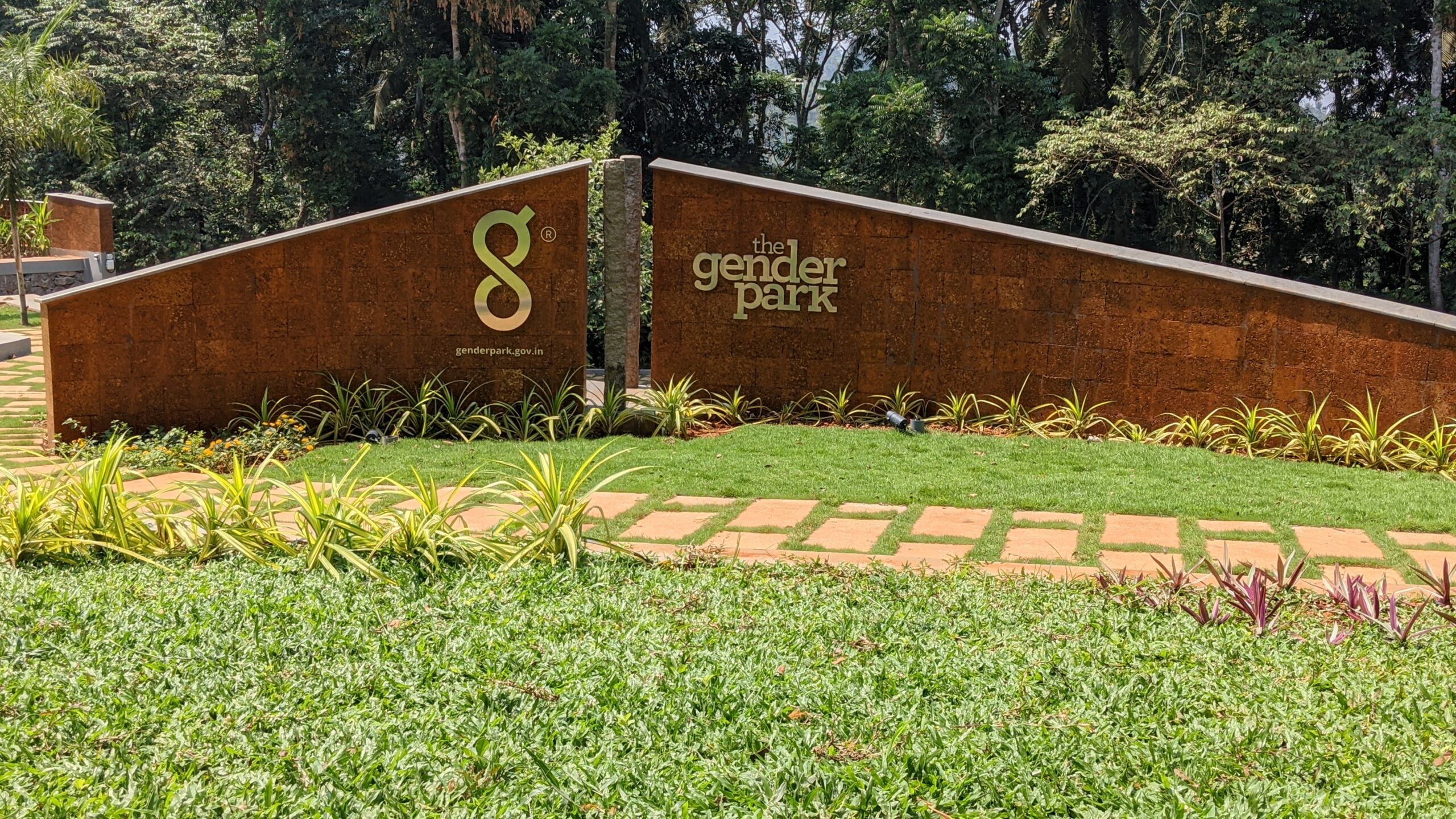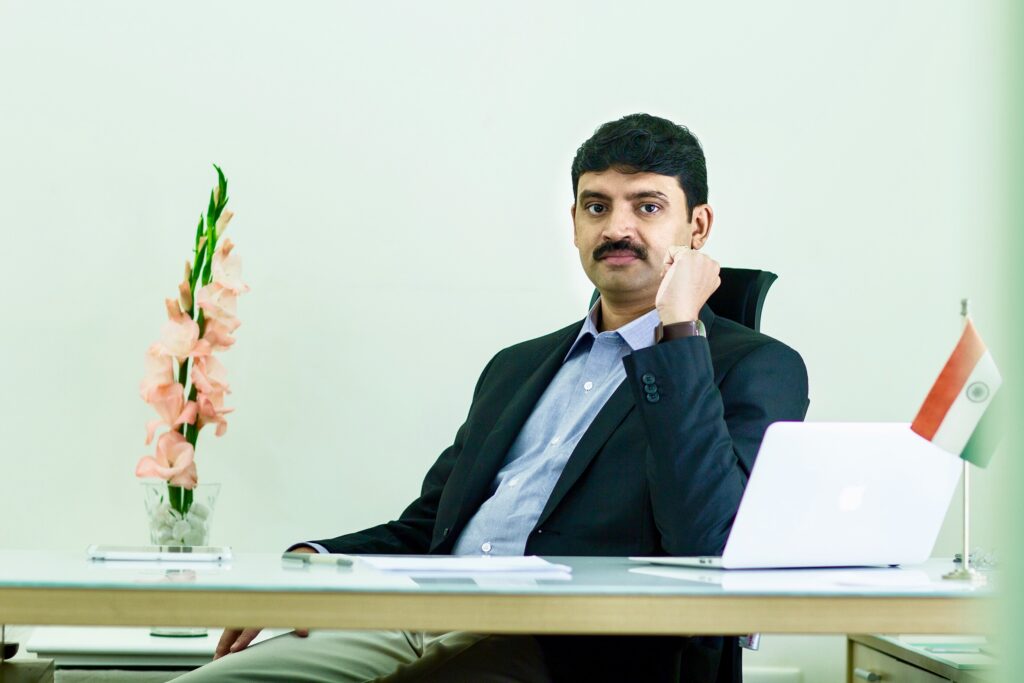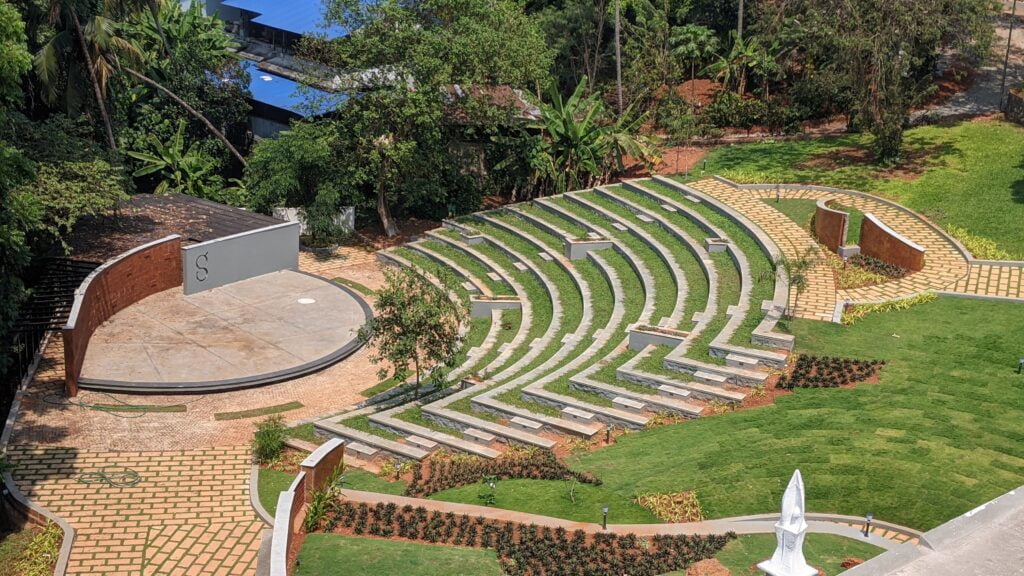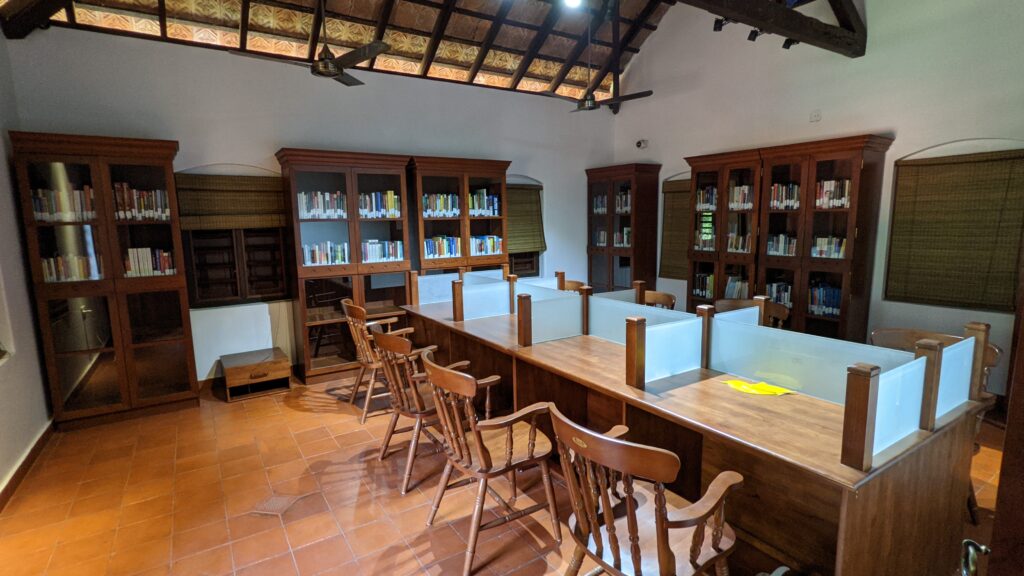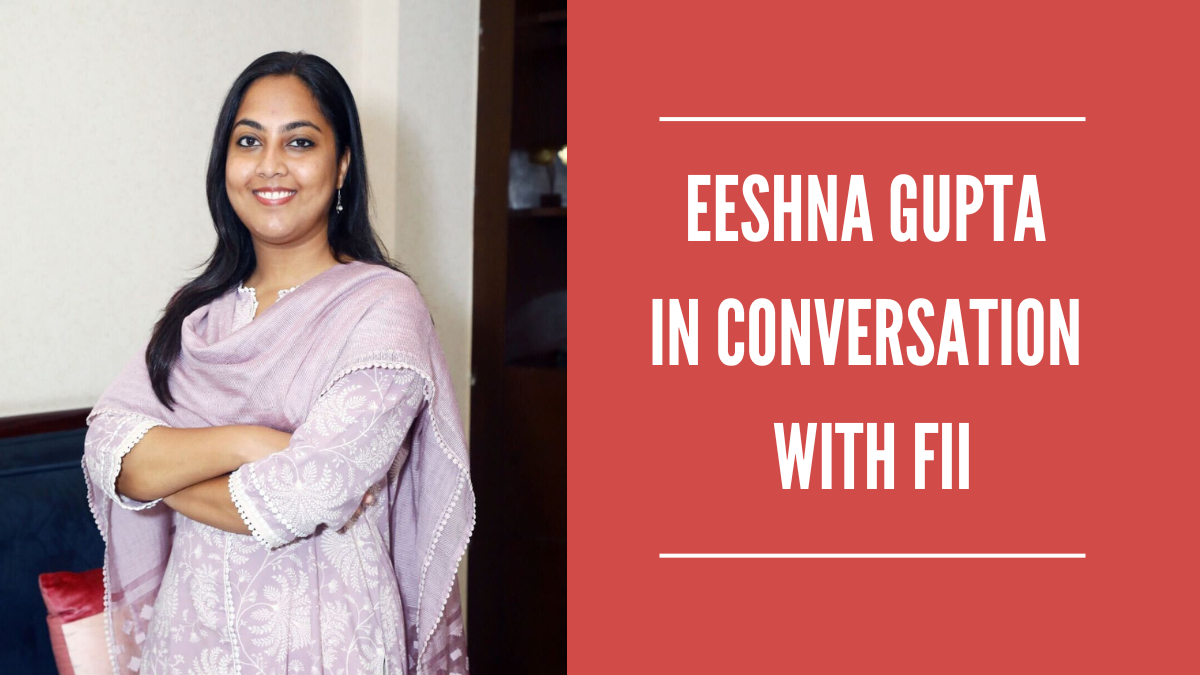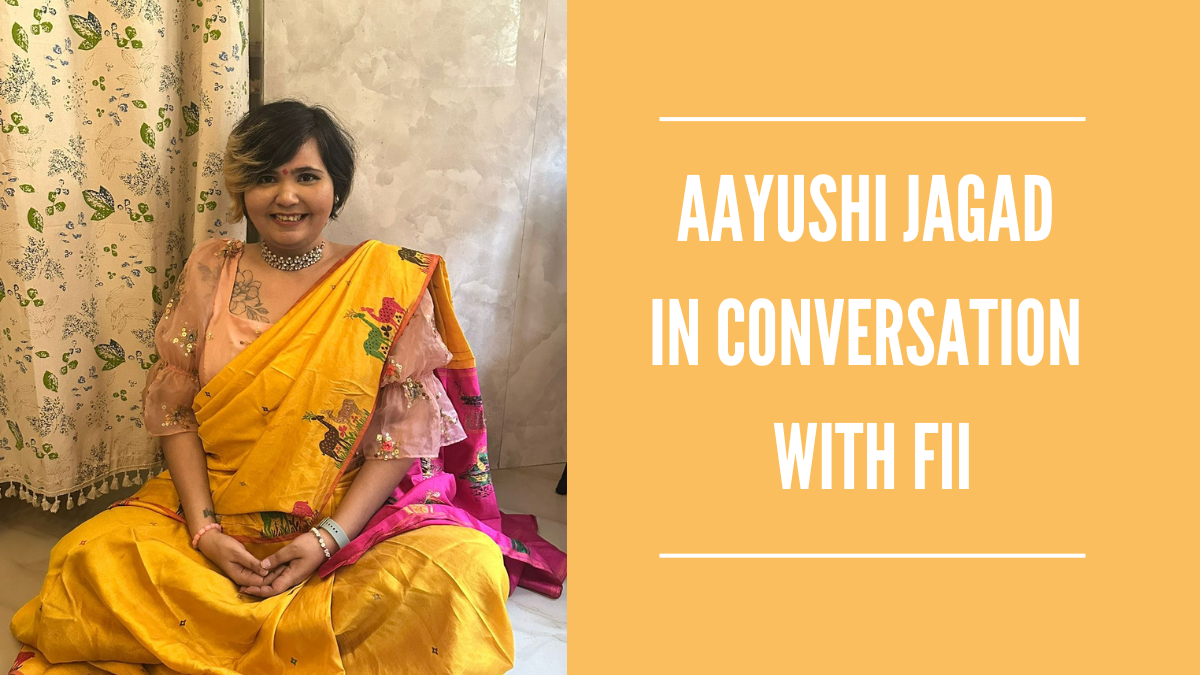Kerala’s city of Kozhikode now houses India’s first Gender Park, which is hailed as a South Asian hub for gender equality. A gender convergence hub, it works towards gender-sensitive policy interventions, awareness generation, and the creation of opportunities for women.
Today, FII is in conversation with Dr. PTM Sunish who explains the goals of The Gender Park, how a park for gender equality works, and how the park will play a crucial role in paving the way for gender equality and women empowerment in the state. He also tells us how The Gender Park seeks to ensure that transgender persons and women of disadvantaged and marginalised communities are centred in their vision for the park.
FII: What is The Gender Park and what does it seek to achieve?
Dr. Sunish: Established in 2013, The Gender Park is a Government of Kerala-led initiative conceptualised to develop strategies, policies, projects and programs to achieve the goal of gender equality, leaving no one behind. Headquartered in the state’s capital Thiruvananthapuram, with its main 24-acre campus set at Kozhikode, The Gender Park currently operates under the aegis of the state’s Women and Child Development Department. The apex authority is the governing body chaired by the Minister for Women and Child Development.
Functioning as a gender convergence hub, we intend to work through a multi-pronged approach, rooted in gender-sensitive methods, towards research, dialogue, policy interventions, awareness generation, and the creation of economic opportunities.

Dr PTM Sunish, CEO, Gender Park
FII: The Gender Park has been hailed as a South Asian hub for gender equality. What can a park do for gender equality?
Dr. Sunish: An MoU with UN Women was signed in December 2020 to position The Gender Park as a South Asian hub. It will be a platform for concerted efforts to inform policy efforts through evidence and data from the ground. As a first step, a gender data cell is being established. Data is the key to good planning, as you know, and is a priority for us. The Hub will be built by relying on the ongoing efforts and expertise of different gender-related coordination groups. It will be developed based on the analysis and technical guidance available from these different groups and these efforts will be consolidated to offer integrated technical advisory support to sectors, government agencies, and local CSO partners. It will:
- Serve as a training hub through the development and delivery of training courses for frontline functionaries and local CSO counterparts in various areas, such as gender awareness, gender and diversity, gender, and GBV mainstreaming.
- Act as a knowledge management hub of assessments and research that will contribute to strengthening the knowledge and evidence-base for designing and monitoring results-based interventions that will have considerable impact.
FII: How does The Gender Park enhance marginalised genders’ participation in public life and address other important issues such as social and financial independence?
Dr. Sunish: We strive to be inclusive. You may remember that the Transgender policy of the State was formally issued at The Gender Park’s first International Conference on Gender Equality, where we invited transgender persons from across the country. They said that it was the first time that they shared the stage in a high-level, formal event in Kerala. At the second Conference held in Kozhikode last February, we ensured that Transgender persons were members of each panel and their concerns and issues were fully integrated into the Conference discussions.
Further, financial independence is a central issue to us. Through its projects, The Gender Park is constantly trying to achieve this goal of financial independence, particularly for disadvantaged women. She Taxi, one of our flagship projects, is developing a sustainable business model for economic empowerment, safety, and security of women through the promotion of entrepreneurship. The She Taxi project supported women, chosen from economically disadvantaged backgrounds, to break out of traditional, stereotypical roles and shift into a newer profession. Many of them have emerged as entrepreneurs in a ‘for woman, by woman’ service model.
Similar projects and other stakeholder consultations are being initiated (approvals awaited), to enhance the participation of marginalised genders in public life. It has been an uphill battle, especially trying to coordinate with the non-governmental sector, but suffice to say that many women today are running their own sustainable businesses and generating income.

Gender Park, Kozhikode
FII: Chief Minister Pinarayi Vijayan also laid down the foundation for the International Women’s Trade Centre. What are the goals for the first year of IWTC and what’s the plan of action?
Dr. Sunish: IWTC, a model trade centre for creating a safe and sustainable environment for the growth of women in business and entrepreneurship, will be set up at The Gender Park campus in Kozhikode. IWTC envisages becoming a destination retail and holistic business support centre, that hand-holds and encourages women towards business and innovation, ensuring that their economic, social, and health needs are catered to, for their overall development. This while also keeping in line with the Sustainable Development Goals of the United Nations. The first year or two will be mostly dedicated to developing the infrastructure and conceptualising IWTC for the Kerala context.
FII: Do you think it could be perceived as a PR stunt or mere tokenism? If one were to ask if there weren’t other, more useful things that could have been done, instead of building an expensive park, what would your answer be?
Dr. Sunish: A PR stunt? Firstly, let’s remember that while the rest of the country is still only having conversations about women’s empowerment, it is only the Kerala Government that has declared a policy of Gender Equality and Women’s Empowerment. For the Government, giving women and transgender persons equal access to education, health services, and opportunities is as important as ensuring they have equality, both in the economic sphere and in enhancing their agency.
Further, the labour participation of women in the state is very low, hovering around 30%. We see this almost as a priority issue. As the State’s 2021 state budget speech clarified, we have to reduce the burden of unpaid work on women and increase their productivity directly as workers and indirectly in their roles in investing in their homes and communities. This is certainly no PR stunt.
IWTC will play a crucial role in this regard, assisting women entrepreneurs to set up a business and extend support and guidance to convert women’s workspace without confining them to home-based occupations. It will empower women with key job and life-skills (plumbing, electrical work, carpentry, minor vehicle repairs, and other maintenance works). It seeks to get potential women entrepreneurs to come forward and participate in international trade, enjoy greater economic benefits, and enhance their competitiveness. By giving special focus on marginalised groups, IWTC helps to harness and nurture their entrepreneurial capabilities. The infrastructure plays a key role in allowing us to host international conferences, research activities, convergence centre for gender-related activities and learning and knowledge exchange space through the library and museum. The amphitheatre will play a vital part in creating awareness on gender issues, establishing a platform for diverse voices, and promoting socially responsible art and culture.

Gender Park, Kozhikode
FII: Simply put, Kerala may be positioned better than other states when it comes to the status of women, but things are still bad for women there. Be it in terms of social and cultural disadvantages, financial dependency, lack of political and public participation, or violence against women; so is a Gender Park what we really need at a time when women face structural and institutionalised sexism that translates in to disadvantages, discrimination, and violence every single day?
Dr. Sunish: Firstly, I would say that people who argue that a Gender Park is not the need of the day do not understand the importance of gender equality in the development of a state. Kerala has dealt quite successfully with the first generation of education and health issues. As you say there is a long way to go before we can rest, and that is exactly what will be the focus of The Gender Park. Secondly, we completely agree that structural and institutionalised gender issues need to be addressed. Gender issues when combined with other variables such as culture, caste, and class become intractable. There are no simple answers, as we have discovered.
But The Gender Park hopes to address these issues through influencing policy, raising awareness, and increasing the economic independence of women. It aims to become a convergence centre to address issues related to all genders, as well as find innovative ways to address the economic issues that confront women. It will do this through building strong partnerships with many departments of the government including the police, women and child development department, local self-government, NGOs and central agencies and will try to fill the huge gap caused by social and cultural disadvantages, financial dependency, lack of political and public participation. Apart from executing projects for empowering all genders, The Gender Park is a consultative platform that already encourages a participatory approach to discussing issues and solutions to address the disadvantages, discrimination, and violence that women continue to face.
Also read: In Conversation With Angellica Aribam: Visibilising Women In Politics
FII thanks Dr. Sunish for their time. You can read more about The Gender Park here. You can follow Dr. Sunish on Twitter.
About the author(s)
